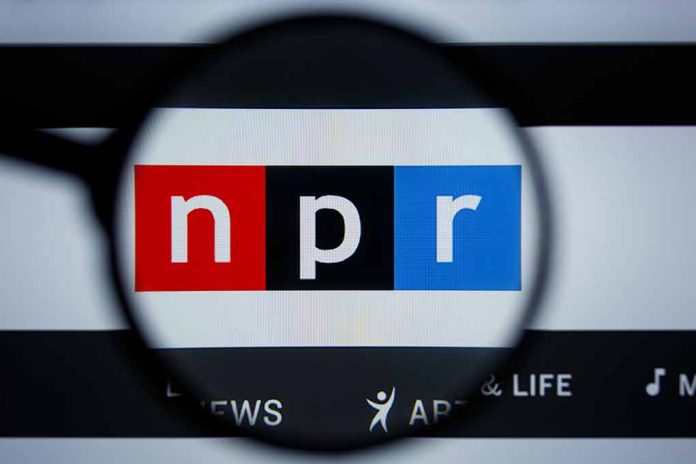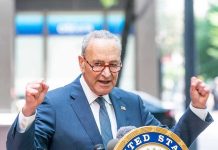
President Trump ends taxpayer funding for NPR and PBS, citing their transformation from unbiased public services into vehicles for “radical, woke propaganda disguised as news.”
Key Takeaways
- President Trump signed an executive order cutting federal funding to PBS and NPR, directing the Corporation for Public Broadcasting to cease all support by June 30, 2025.
- The White House justified the cuts by citing the networks’ alleged partisan bias and violation of their statutory obligation to remain politically neutral.
- Former NPR editor Uri Berliner’s criticisms were referenced, including NPR’s sparse coverage of the Mueller report findings and complete avoidance of the Hunter Biden laptop story.
- The administration argues that government funding of media is “outdated and unnecessary” given today’s diverse media landscape, unlike when the CPB was established in 1967.
- PBS and NPR currently receive approximately half a billion dollars in public funding through the Corporation for Public Broadcasting.
Trump Cuts Ties Between Taxpayers and Liberal Media
In a decisive move fulfilling a campaign promise, President Trump signed an executive order eliminating federal funding for the Corporation for Public Broadcasting (CPB), effectively cutting taxpayer support for NPR and PBS. The order directs the CPB and all federal agencies to identify and terminate both direct and indirect public financing for these organizations. The White House clearly articulated the reasoning behind this decision, stating that these networks
“receive millions from taxpayers to spread radical, woke propaganda disguised as ‘news.'” The White House.
The executive order emphasizes that the current media landscape renders government-funded broadcasting both unnecessary and potentially harmful. Unlike in 1967, when the CPB was established, today the media landscape is filled with abundant, diverse, and innovative news options. Government funding of news media in this environment is not only outdated and unnecessary but corrosive to the appearance of journalistic independence. At the very least, Americans have the right to expect that if their tax dollars fund public broadcasting at all, they fund only fair, accurate, unbiased, and nonpartisan news coverage. No media outlet has a constitutional right to taxpayer subsidies, and the Government is entitled to determine which categories of activities to subsidize,” Trump’s executive order stated.
🚨🇺🇸 BREAKING: TRUMP SIGNS ORDER TO DEFUND NPR & PBS: “NO MORE TAXPAYER PROPAGANDA”
Trump just signed an executive order cutting off all federal funding to NPR and PBS, calling them biased and outdated.
The move instructs the Corporation for Public Broadcasting to cancel… https://t.co/lTH7ZYHWq8 pic.twitter.com/1QwFKLWMwQ
— Mario Nawfal (@MarioNawfal) May 2, 2025
Statutory Violations and Liberal Bias
The executive order highlights that the CPB’s governing statute explicitly requires impartiality in its programming. Specifically, the law mandates that the CPB may not “contribute to or otherwise support any political party.” President Trump’s administration has concluded that both NPR and PBS have strayed far from this mandate, becoming mouthpieces for left-wing ideology rather than neutral providers of information and educational content. This transformation directly contradicts their legal obligations and the original purpose for which they receive taxpayer funding.
“The CPB’s governing statute reflects principles of impartiality: the CPB may not ‘contribute to or otherwise support any political party,'” the order states
Former NPR editor Uri Berliner’s public criticisms of his employer provided significant ammunition for the administration’s decision. Berliner detailed how NPR has abandoned journalistic principles in favor of promoting progressive viewpoints. He specifically noted NPR’s minimal coverage of the Mueller report’s findings that failed to establish Trump-Russia collusion and the network’s complete blackout of the Hunter Biden laptop story before the 2020 election. These editorial decisions reflect a pattern of bias that violates the statutory requirements governing publicly funded media.
Farewell, Seasame Street.
President Trump just signed an executive order to defund PBS and NPR. pic.twitter.com/YB2Ic4V6ov
— Denny Burk (@DennyBurk) May 2, 2025
Implementation Timeline and Legal Challenges
The executive order establishes a clear timeline, requiring the CPB Board to revise its funding criteria to prohibit support for NPR and PBS by June 30, 2025. Meanwhile, PBS has not remained silent in the face of these cuts. PBS CEO Paula Kerger has stated that cutting funds would disrupt essential services provided by the network and its local stations. The CPB has already initiated legal action against President Trump for firing three board members, claiming he exceeded his authority, signaling that the implementation of this executive order will likely face judicial challenges.
“For years, American taxpayers have been on the hook for subsidizing National Public Radio (NPR) and the Public Broadcasting Service (PBS), which spread radical, woke propaganda disguised as ‘news,'” according to Daily Wire.
President Trump’s administration is also planning to ask Congress to rescind funding for the CPB as part of a larger budget cut package. This legislative approach would provide a more permanent solution than the executive order alone. Simultaneously, the administration is working to restructure the U.S. Agency for Global Media, though these efforts are facing challenges over the withholding of funds appropriated by Congress. These comprehensive actions reflect Trump’s commitment to eliminating what many conservatives view as government-sponsored liberal propaganda networks that have abandoned their original mission of impartial public service.













